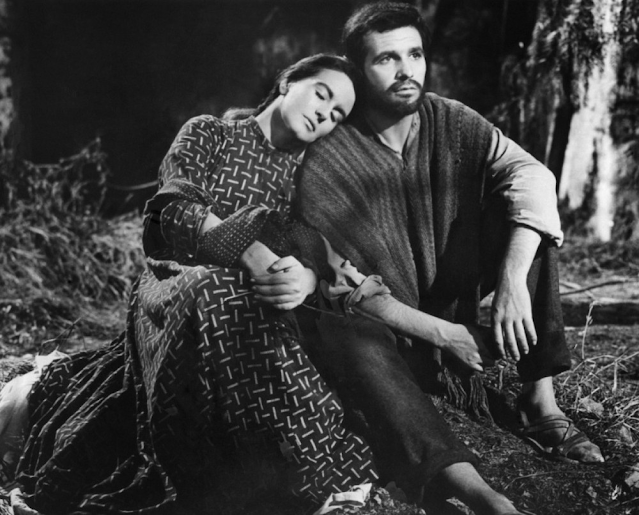Nazarin (1959)
Luis Bunuel's "Nazarin"
In one of Luis Bunuel's last films he did in Mexico, "Nazarin" tells the story of a humble priest who lives a charitable life in accordance with the fundamental values of the Bible. The film was adapted from the novel of the same name by Benito Perez Galdos. It may not be one of his most renouned or remembered films, but "Nazarin" is still considered an essential film in Bunuel's extended filmography.
The story of this priest essentially mirrors the story of Christ. Father Nazario is a priest who strictly adheres to the principles of Christian values. He allows people to take freely from him, he helps others in need, and demonstrates understanding and compassion to everyone around him. However, because of his strict adherence to compassion and unyielding charity, he unintentionally demonstrates the hypocracy of the church, the government, and humanity itself. The church rebukes his priesthood and he is forced to wander the country with two 'followers.' In being undeniably good intentioned and good-natured, he shines a light on the horrible and grotesque behavior of everyone around him.
With "Nazarin," Bunuel paints a world of corruption and wickedness. Our protagonist priest is the only shining light, and his undying love and forgiveness for those around him wears off on some, like the two women following him. It also can wear off on the viewer. Despite being punished and even executed for his behavior, you still find virtue and nobility in what he is doing. Like the story of Christ, "Nazarin" offers a better alternative to a way of living and a way of behaving that is better suited for a redeemed soul.




Comments
Post a Comment